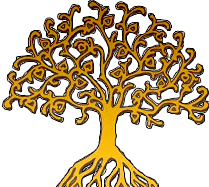Contents
I. Time in History of Philosophy
Antiquity and Meddle Ages
Severina Stankeva – Exaíphnes in Plato’s epistemology [Понятието изведнъж в епистемологията на Платон] [PDF pp. 3-18]
Vladimir Pachemanov – Eternity, Infinity And Time In The Debates On The Beginning of the World [Вечност, безкрайност и време в споровете за възникването на света] [PDF pp. 19-33]
Byzantine
Smilen Markov – The Personal Time: Phenomenological Approach in Ethics and the Byzantine nition of time [Персоналното време: феноменологическият подход в етиката и византийското схващане за времето] [PDF pp. 34-50]
Diana Nikolova – The Authentic Personality – Real and Ontological [Автентичната личност – реална и онтологична (поглед върху труда на пергамския митрополит Йоан Зизиулас „Личност и битие”)[ [PDF pp. 51-59]
Contemporary and Post-modern
Alex Kostova – Heidegger and the Destitute Time [Хайдегер и убогото време] [PDF pp. 60-67]
Georgi Gerdjikov – Fragments of the Time/Eternity Divide in the 20th Century. [Фрагменти от опозицията време/вечност в ХХ век] [PDF pp. 68-78]
Martin Villa – Contemporary Utopianism: Theory and Practice. Imprints of blueprints [PDF pp. 79-88]
II. Time, Philosophy and Art
Savina Petkova – Time and fiction: what happened Last Year At Marienbad? [Време и фикция или какво се случи Миналата година в Мариенбад] [PDF pp. 89-95]
Raiko Baichev – Putting death into brackets. [Ограждане на смъртта в скоби] [PDF pp. 96-103]
Mitko Markov – Time as the symbol of harmony and destruction in Singer’s mousaic dance. Meditation based on the painting of John Singer “Apollo and the Muses” 1921 [Времето като символ на хармония и деструкция в музическия танц на Сингер] [PDF pp. 104-110]
